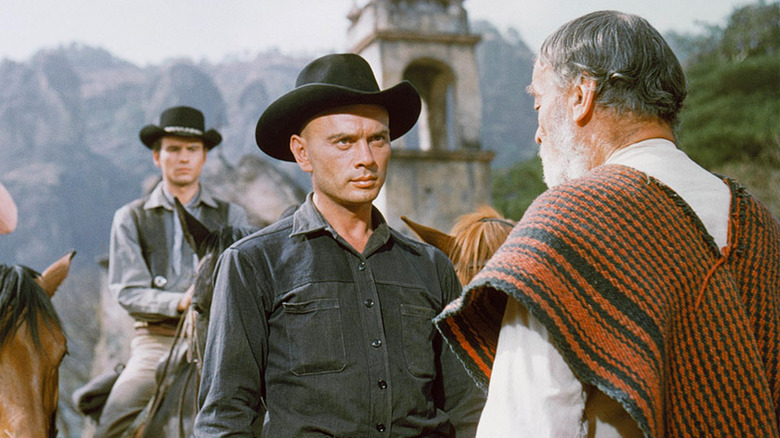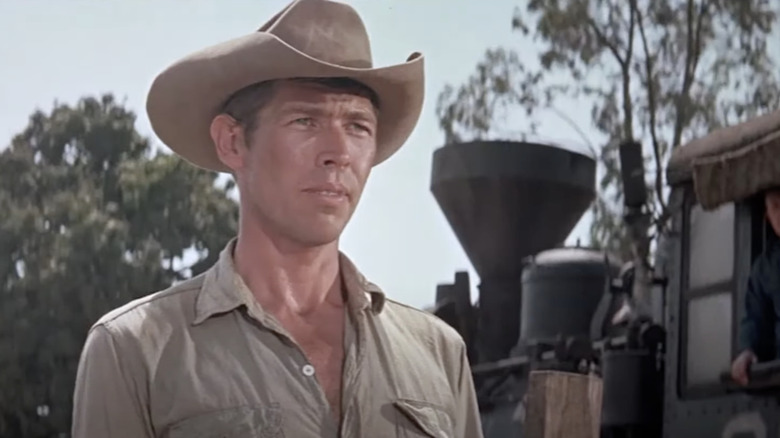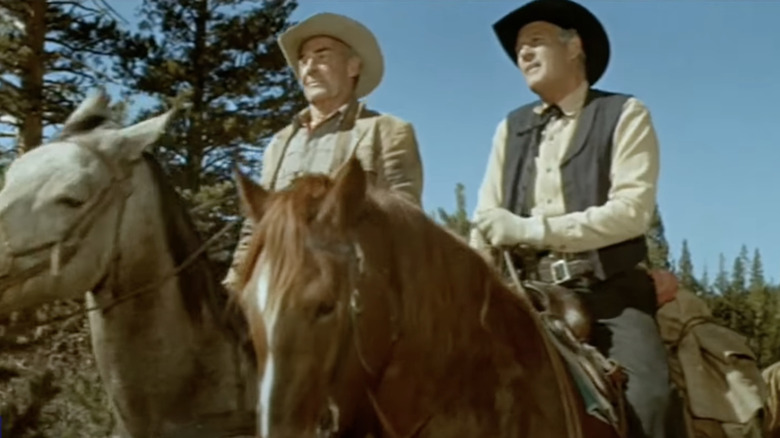The Real Writer Of The Magnificent Seven Didn't Get The Credit He Deserved
When it comes to dividing the credit for collaborative work, nothing is ever straightforward. Some people might be determined to claim as much credit as possible, while others are more relaxed about the whole ordeal — just look at James Cameron, who provided some guidance on the recent Terminator movies but didn't receive any credit. Fortunately, official credit eligibility has recently been expanded so that script contributors can be acknowledged as such, but things weren't always so clear-cut. It's no surprise that battles over acknowledgment have led to so many conflicts; no one wants the wrong person to get all the praise.
Unfortunately though, such was the case for "The Magnificent Seven," a Western remake of Akira Kurosawa's "Seven Samurai." If you were to look up the American film's crew, you'd find only one man officially credited for the script: William Roberts. However, Roberts only played a small role in the script's creation; screenwriter Walter Newman wrote the bulk of the adaptation but was removed from the credits (at his request) following an argument about attribution.
Life imitates art
In one of the most memorable scenes of "Seven Samurai," two samurai duel with bamboo rods. Overestimating his abilities, the loser declares the fight to be a tie; when the winner tells him that he lost, he insists upon a rematch with steel swords. Lo and behold, the loser meets his match (and a swift end).
"The Magnificent Seven" may have set out to recreate "Seven Samurai" on screen, but the conflict over its writing credits feels no less dramatic. Roberts, like the lesser samurai, had a small but important role to play: just as the samurai was meant to help defend the village, Roberts was supposed to incorporate minor rewrites into the script since Newman was participating in a guild strike. However, Roberts decided to fight for screen credit, and when Newman heard about the whole ordeal, he got mad and requested to be removed from the credits. Director John Sturges wasn't happy about Roberts' sudden insistence upon glory, either, and said that if he was a part of the arbitration panel, he would've ruled in Newman's favor.
Unfortunately, Newman's bad luck would continue. He would partner with Sturges again on "The Great Escape," but was kicked off the project and again did not receive credit. Around the same time, he would also write "Harrow Alley," a highly praised script that would never get made. Eventually, though, he'd find his way back to success: by 1965, he would be nominated for an Academy Award for his work on "Cat Ballou."
Roberts had another credit discrepancy, too
As for Roberts, he would work on another film with partially inaccurate credits, too — though this situation would be far more altruistic. After his brief stint with "The Magnificent Seven," Roberts helped to rewrite "Ride the High Country," a job that required far more intensive work from the screenwriter.
According to producer Richard Lyons, the original script for "Ride the High Country" was written by Roberts' friend N. B. Stone. However, Stone was battling alcoholism when he wrote what Lyons called an "awful" screenplay. In an effort to help Stone get his life back on track, Roberts volunteered to clean up the script:
"Roberts felt terrible about the whole thing and offered to do an uncredited rewrite. So we worked nights and weekends on it out at Roberts's house, and he virtually rewrote the whole d**n thing. But he wouldn't put his name on it because he wanted to do something for Stone who really needed a break."
Working for free on "Ride the High Country" might not make up for the fact that Roberts' meddling kept Newman from receiving credit for "The Magnificent Seven," but it certainly would've been a bit of good karma afterward. That being said, it's also fitting that they are both receiving credit for their anonymous work now, if for no reason other than to set the record straight.


